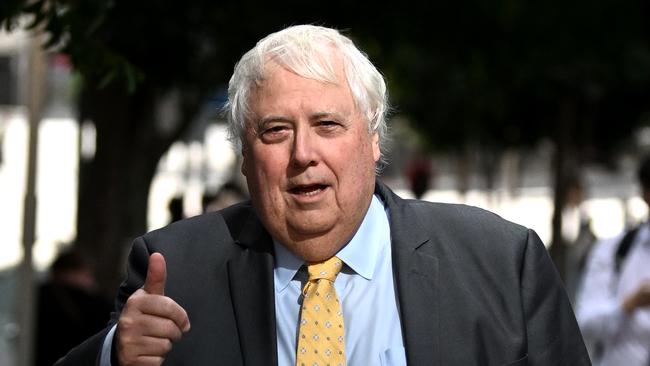State coal decision shows dangers of bill-of-rights law

Waratah’s application was for a mining lease and an environmental authority to allow it to mine thermal coal in the Galilee Basin, where it had commenced exploration in 2006. The intended market for the coal was Southeast Asia with its growing population and increasing demand for electricity. Because the court took the view that, even though the coal would be combusted overseas, the effect on climate change would be felt generally, including in Queensland, it is likely Waratah’s application would have been rejected in any event. But the court’s consideration of the charter of rights is a graphic illustration of the wide-ranging impact of this kind of legislation.
The court considered the mining project would have a deleterious impact on a number of rights of persons in Queensland that were specified in the charter, including:
• The right to life of Queenslanders because of the public health dangers of climate change; the right to protection needed by every child.
• The arbitrary deprivation of property due to the increased severity and frequency of bushfires and floods.
• The right to enjoy other rights without discrimination, given the disproportionate impacts of climate change on some groups in the community.
These were all factors taken into account by the court on the question of public interest that had to be considered in relation to the application for the mining lease. There can, of course, be a legitimate political debate as to whether this and other mining projects should proceed in the light of a range of economic and environmental aspects of the project. But, because that is a political question, it ought to be one for the government of the day so at the next election voters can endorse or reject its policies on these issues rather than having these decisions made by courts and tribunals.
It is important to stress that political questions do not undergo a change in character when they are given to a court. They remain political questions except their decision is removed from elected parliamentarians and given to unelected judicial officers. The decision of the Queensland Land Court demonstrates graphically the truth of this proposition. It may well be that many judges do not want to be involved in these political issues but the generality of a bill of rights makes it very difficult to avoid this kind of involvement. As already noted, the Queensland provisions, like those of Victoria and the ACT, refer to limitations on the right to life and the right not to be arbitrarily deprived of property. There is enormous scope for subjective interpretation in the case of such open-ended concepts.
The supporters of bills of rights, however, welcome these decisions being made by courts rather than by parliaments and want bills of rights to deal not only with traditional political questions, such as freedom of speech, but also with economic and social rights, such as an entitlement to affordable housing and to schools of a certain standard.
The political character of a bill of rights is underlined by the US experience, where questions of the validity of same-sex marriage and the extent of abortion laws have been decided by the Supreme Court and not by the congress. This has resulted in the judges of the court becoming highly politicised and their confirmation by the Senate, following nomination by the president, has produced brutal confrontations between Democrats and Republicans. This is because of the realisation on both sides, which is shared by many voters, that the court is a major player in the political process.
In Australia, the advocates for bills of rights want to use these statutes, and judicial decisions arising out of them, to bring about social and economic changes they know would not be able to gain the approval of parliamentarians and voters. What they want is to achieve their ends without being troubled by the democratic process.
Michael Sexton’s latest book is Dissenting Opinions.







The great objection to a bill of rights has always been that it amounts to a transfer of power – in the form of decisions on political, social and economic issues – from elected members of parliament to unelected judges in the courts. There can be no more striking demonstration of this transfer of power than the decision in November by the Land Court of Queensland in considering whether Waratah Coal – part of Clive Palmer’s empire – should be granted a mining lease. One important factor in the court’s rejection of Waratah’s application was the operation of the Queensland Human Rights Act 2019, essentially modelled on earlier bills of rights enacted in Victoria and the ACT.